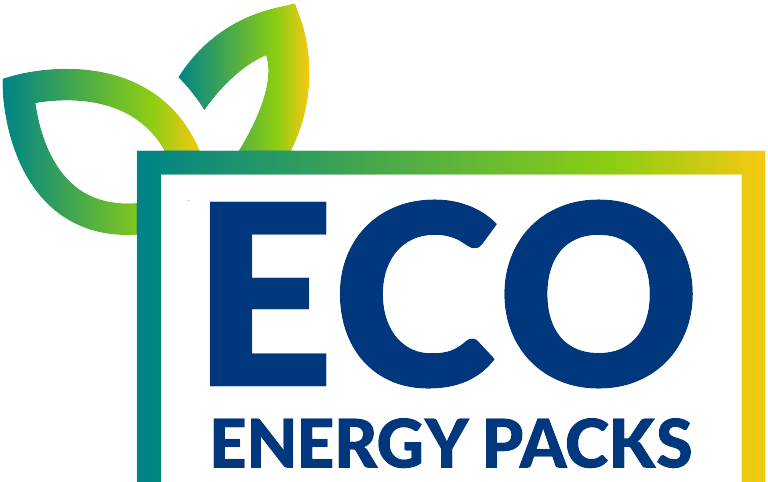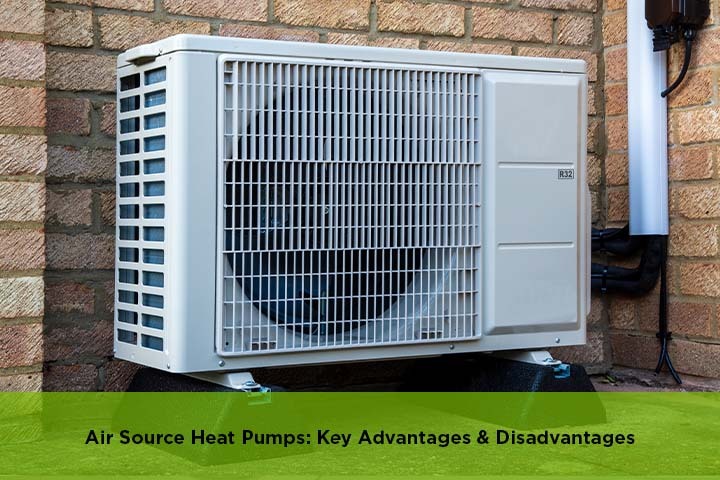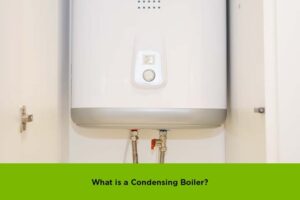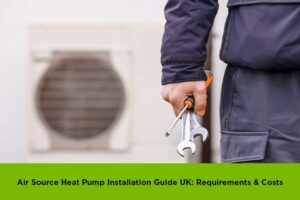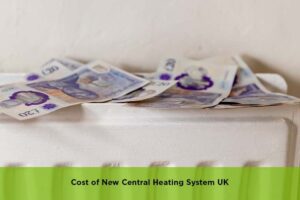Warming a house is necessary, particularly during chilly UK winters. Air source heat pumps are becoming increasingly popular with them. These pumps are growing in popularity across the UK. They help heat homes using outside air.
Even in winter, they can collect heat from the air. This heat is used to warm your house. But, as with all things, there are pros and cons. Let’s talk of the most significant advantages and disadvantages for UK homes. We’ll make it simple and easy to read.
What Are Air Source Heat Pumps?
An air source heat pump is a heating system. It takes heat from the air outside your home. It then moves that heat indoors using a special machine. It works like a fridge but in reverse. Even when the air is cold, it can still collect heat.
It is an electric system but produces more heat than power it consumes. It can be designed with radiators, underfloor systems, or hot water cylinders. Many UK homes are now choosing this system instead of gas boilers.
Advantages of Air Source Heat Pumps in the UK Homes
1. Lower Energy Bills Over Time
One of the best parts is saving money. Air source heat pumps use less energy than gas boilers. Once installed, they cost less to run each month. You may pay more at the start, but the savings add up later.
If your home is well insulated, the system works even better. That means even less heat is wasted. Over time, this can cut heating bills a lot. So, your energy costs can go down for many years.
2. Lower Carbon Emissions
This system is very good for the environment. It gives off less carbon than gas or oil boilers. That means it helps fight climate change. The UK wants to cut carbon emissions from homes. Air source heat pumps are part of that plan.
If you also use green electricity, it’s even better. Your home becomes much greener. It’s an environmental movement for a greener Earth. That’s why increasingly more individuals are choosing this eco-friendly option.
3. Government Grants Available
The government of the UK provides grants to help with heat pump systems. There is a scheme called the ECO4 Scheme. It can contribute 100% to help with the cost. This lowers the price of the heat pump for most homes.
It also encourages more homes to switch. If you meet the rules, you can apply. The process is easy and the help is real. It’s a good way to get support when changing your heating system.
4. Easy and Safe to Use
Air source heat pumps are easy to run. You don’t need to keep turning them on or off. They work best when left running. The system is also safe and doesn’t burn fuel.
There’s no risk of gas leaks or carbon monoxide. You don’t need to store fuel like oil or wood either. Everything is neat, clean, and simple. For families, it’s a very safe and user-friendly system.
5. Can Also Cool Your Home
Some air source heat pumps can also cool your home. This is useful in warm summers. Just like it moves heat in, it can move heat out. That makes your house cooler in hot weather.
It works like an air conditioner. You get both heating and cooling in one system. This can save space and money. It also makes your home comfortable in all seasons.
Disadvantages of Air Source Heat Pumps in the UK Homes
1. High Upfront Costs (If not on Grants)
It should be mentioned that the cost of installing air source heat pumps is extremely high. The cost can be anywhere between £7,000 and £13,000. Even with some grants like BUS, you may still pay a lot at the start.
|
Only the ECO4 scheme covers 100% cost. Click heat pump grants to get more info |
This can be hard for many households. Others would need loans or savings. This upfront cost is among the biggest drawbacks. Pre-planning and knowing your budget in advance while installing one is crucial.
2. Works Best in Well-Insulated Homes
Heat pumps will not function optimally in poorly insulated homes since they dissipate heat fast. If your home is not well-insulated, it will not retain heat. You will need to insulate your home before anything else. You might need loft insulation or wall insulation.
These jobs also cost money. Without proper insulation, the system will work harder. That can raise your electricity bills and reduce savings. Always check your home’s insulation before installing a heat pump.
3. May Need Bigger Radiators or Underfloor Heating
Heat pumps give out lower heat than gas boilers. This means your radiators may not be enough. You may need larger radiators or install underfloor heating.
This can be another cost to think about. It also means more work inside your home. Some older homes may need a lot of changes. That’s why a proper home survey is very important. It will help you know if your system will need upgrades.
4. Can Be Somewhat Noisy Outside
The outdoor unit of the heat pump makes noise. It sounds like a small fan or fridge. For most people, the noise is not a big issue.
But if the unit is near windows or neighbours, it could be annoying. The sound level depends on the brand and setup. A professional installer can help find the quietest place. Still, it’s something you should think about before installing one.
5. Slower to Heat the Home
Air source heat pumps work slowly. They take longer to heat up your home than gas boilers. They give steady, gentle heat over time. This is fine if your system runs all day.
But if you like fast heating, you may not enjoy it. It’s a different way to keep warm. You must plan ahead and use timers wisely. Once you adjust, many people find it comfortable.
Who Should Get an Air Source Heat Pump?
Air source heat pumps are suitable for most UK homes, particularly new and well-insulated dwellings. Seal draughts if necessary first.
They reduce fuel costs and are a good choice for those who intend to remain for the long term. That way, they save money in the long term. Think about your budget and your requirements seriously.
The Crux
Air source heat pumps are environmentally friendly heating options with the added advantages of lower energy bills and carbon emissions.
They also offer government grants and are safe to use. But there are some disadvantages too. These include high upfront costs and slower heating.
They work best in insulated homes and may need system upgrades. Before you decide, think about your home and budget. Talk to a trusted installer. With the right setup, a heat pump can be a great choice for your home.
FAQs
An air source heat pump pulls heat from external air and employs it to heat your home and water.
Yes, in the longer term air source heat pumps can earn their keep, particularly in well-insulated properties with underfloor heating.
Disadvantages include high initial price, lower level of heat, outdoor unit noise, and lower heating rate during cold conditions.
In fact, it might be required to increase or upgrade radiators to make them work properly with the lower temperature heat output.
Yes, they perform at low temperatures but perform best in well-insulated homes and well-heated installations.
